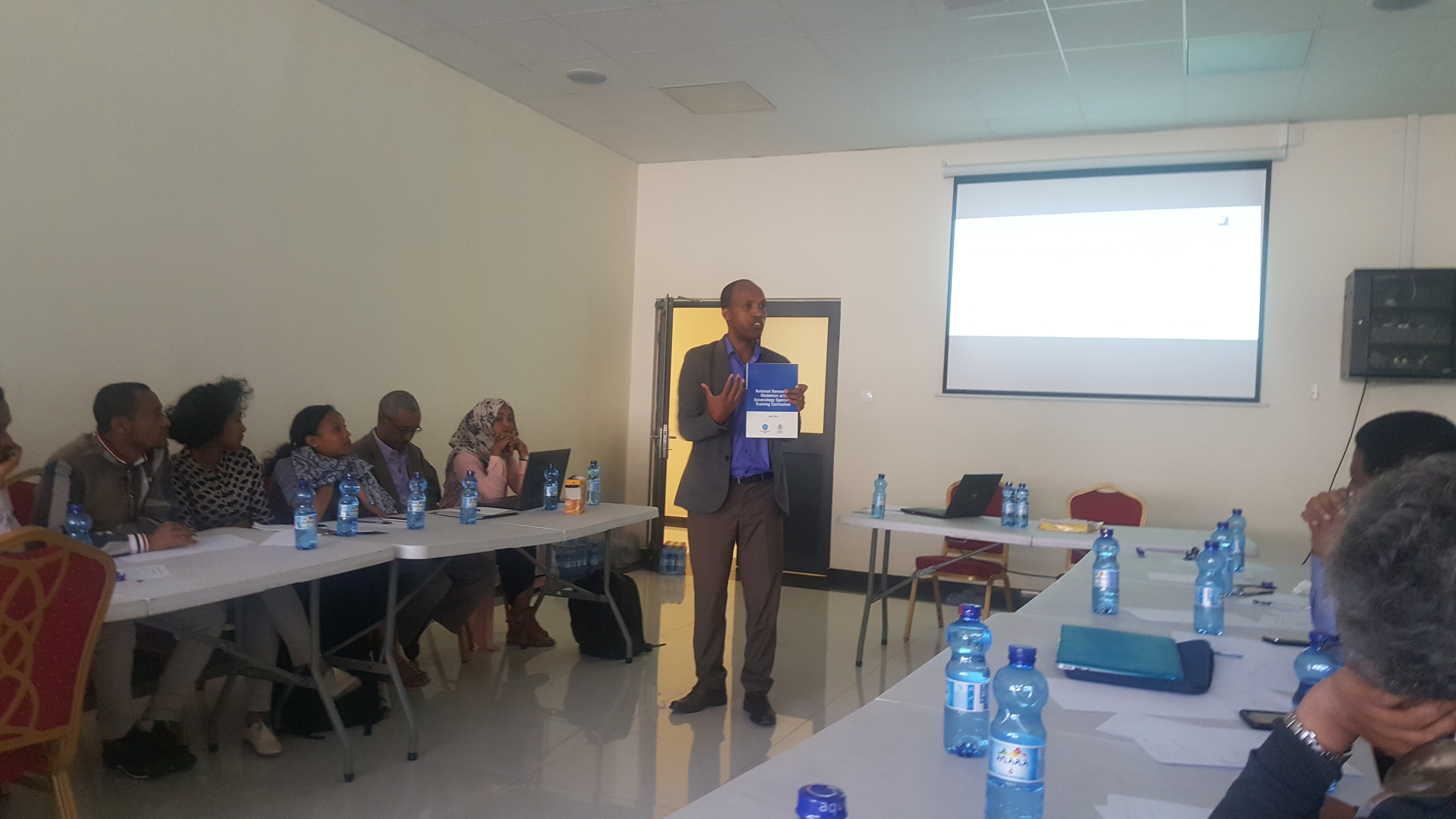The Ethiopian Society of Obstetricians and Gynecologists (ESOG), called upon by the Human Resource Directorate of the Federal Ministry of Health (FMoH), shared its experience of harmonizing residency program curriculums and setting minimum requirements to launch residency programs. ESOG shared the experience on a consultative workshop with professional societies at Ethiopian Public Institute (EPHI) on December 29, 2017.

To share its experience ESOG was represented by Dr. Dereje Negussie, president of ESOG, Dr. Mengistu H. Mariam, executive board member and Dr. Tesfaneh Fikre, project coordinator for the ESOG-ACOG Collaborative Project. Hosted by the Directorate, facilitating the event was Professor Abraham H. Amlak, advisor to the Directorate.
ESOG presented its experience to Societies in various specialty programs such as Dermatology, Ophthalmology, Internal Medicine, Orthopedics, Pediatrics, Radiology and others. The Societies through their representatives applauded the initiative ESOG took in harmonizing the curriculums and producing minimum requirement for universities to launch residency programs in Ob-Gyn.
The FMoH is hoping to take the experience to other residency programs. FMoH will facilitate the initiatives by providing material and human power support and hosting consultative workshops.
12 universities with Ob-Gyn departments had been using different curriculums and there had not been clear consensus as what kind of capacity an institution requires to have before launching residency programs.
Harmonized into one document following ESOG’s initiative, the document entitled- National Harmonized Obstetrics and Gynecology Specialty Training Curriculum is a 96 pages document outlining what a residency program should look like content wise. The document outlines requirements regarding Patient Care, Medical Knowledge, Practice Based Learning and Improvement, Communication and Interpersonal Skills, Professionalism and Ethics, Systems Based Practice, Admission Requirements, Graduation Requirements, Nomenclature of the Specialty Certificates, Teaching and Learning Methods, Assessment Methods and Grading Criteria, Grading, Promotion and Course Scheduling.
It further elaborates the year by year course and practice contents that must be undertaken by a candidate resident before graduation.
The other, on the other hand, is entitled Minimum Requirements for Accreditation of Residency Educational Programs. This document presents a roadmap for institutions and requirements that need to be fulfilled before the opening of a residency program. The requirements involve Human Resource, Number and Variety of Patients, Physical and Technical Resources, Clinical Services, Supporting Services, Equipment and Financial support.
A national board is to be established to review how competent programs are in the various institutions. Once national review starts programs will be labeled Green for good to go, Yellow for required improvements in the program or Red for a potential shut down of the program.
